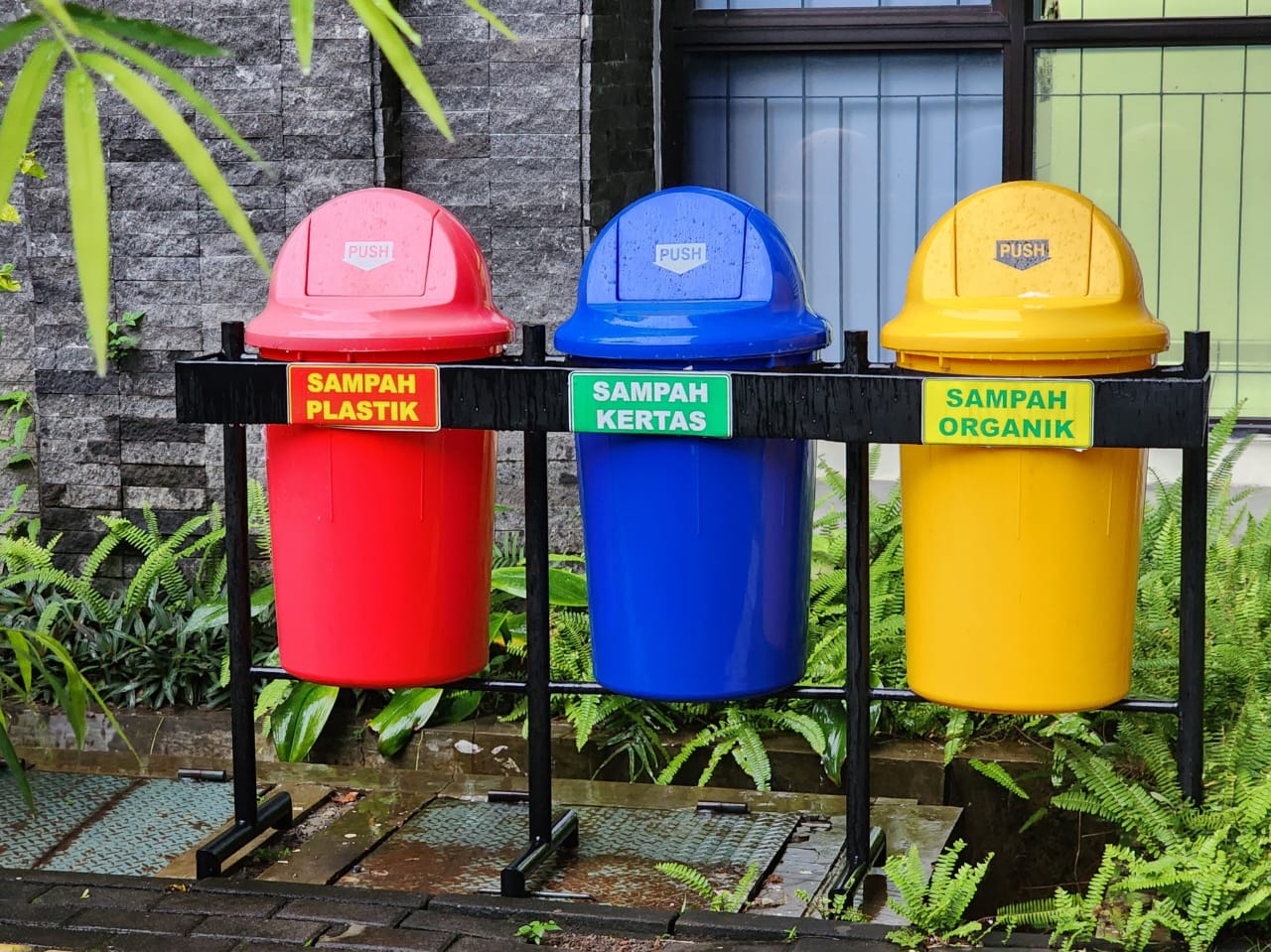As part of its commitment to environmental sustainability, the Faculty of Dentistry at Universitas Gadjah Mada (FKG UGM) invites the entire academic community to actively sort waste on campus.
This campaign aims to create a greener, cleaner, and more eco-friendly campus, in line with the principles of the Sustainable Development Goals (SDGs), particularly Goal 12: Responsible Consumption and Production, and Goal 13: Climate Action.
Sorting waste is not just an obligation; it is a collective responsibility that must start with each individual. By sorting waste, we not only prevent the accumulation of garbage in landfills but also facilitate the recycling process, reduce environmental pollution, and preserve ecosystems. For example, plastic waste, which takes hundreds of years to decompose, can cause irreversible environmental damage.
Waste Sorting Steps
FKG UGM encourages everyone to understand waste categories, separate organic and inorganic waste, and use the recycling bins provided in various areas of the campus.
Additionally, it is important to reduce the use of single-use plastics by bringing personal water bottles and food containers, a small step that can significantly decrease waste volume.
The campus is also committed to providing ongoing education through seminars, environmental campaigns, and other creative activities to raise awareness among the academic community about the importance of proper waste management. This effort aligns with Goal 4: Quality Education, which promotes learning about sustainability and environmental action.
Long-term Positive Impact
By cultivating the habit of waste sorting, the campus will not only become cleaner and more comfortable but will also contribute to resource conservation and carbon emission reduction.
By recycling materials such as plastics, paper, and metals, we can reduce the need to extract new raw materials, saving energy and minimizing negative environmental impacts.
Shared Commitment
FKG UGM believes that small steps like waste sorting, if consistently practiced by the entire academic community, will have a significant impact. Through this collective action, we can all become agents of change in creating a greener and more sustainable future.
Through this initiative, FKG UGM hopes to set an example in waste management and the development of a sustainable campus environment, strengthening its contribution to achieving the SDGs. Let’s work together to create a clean, eco-friendly, and sustainable campus.
Authors: Buana Yaksa and Pram

